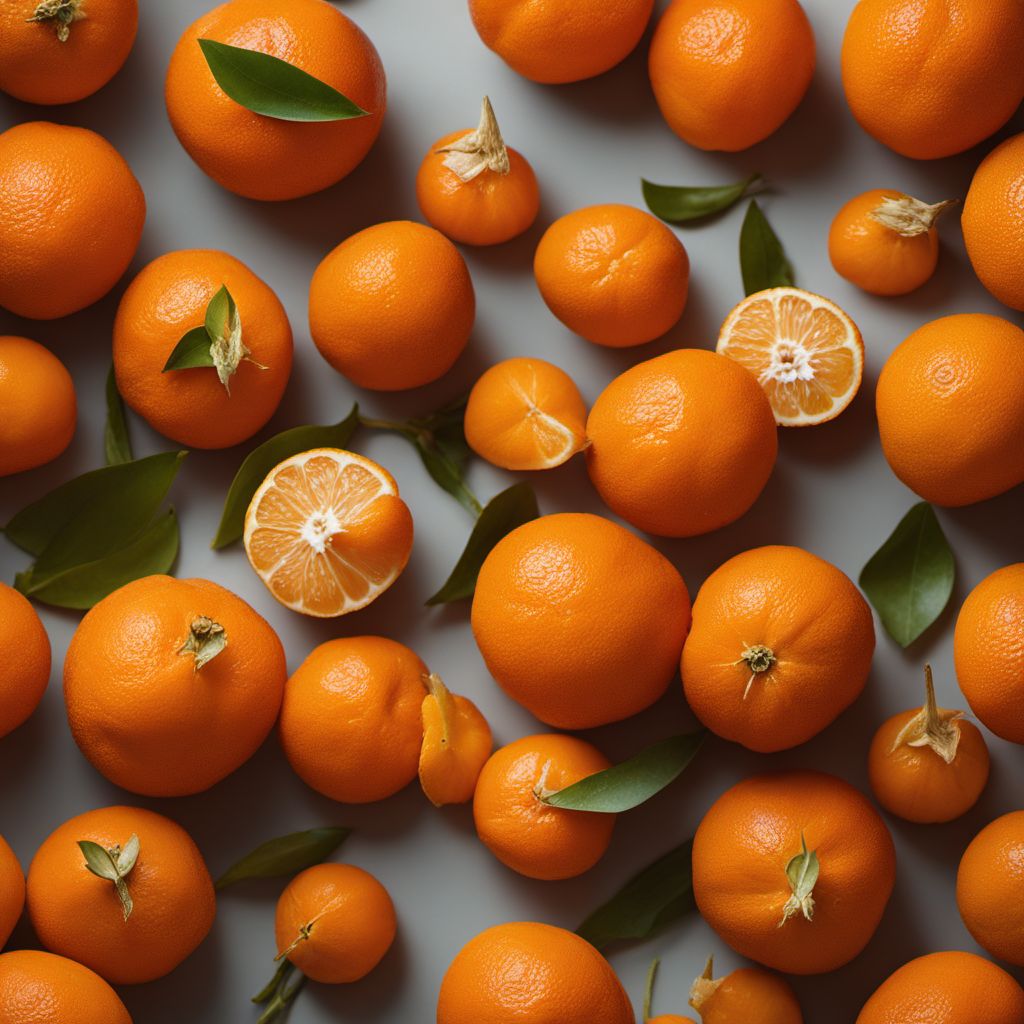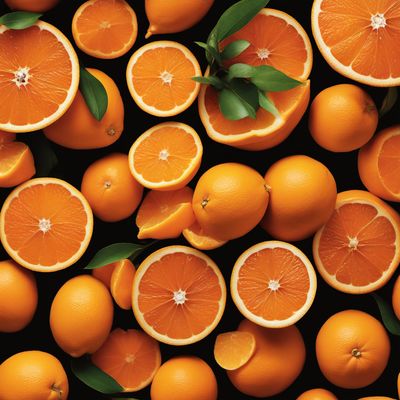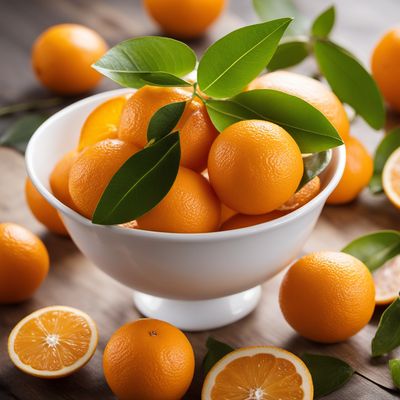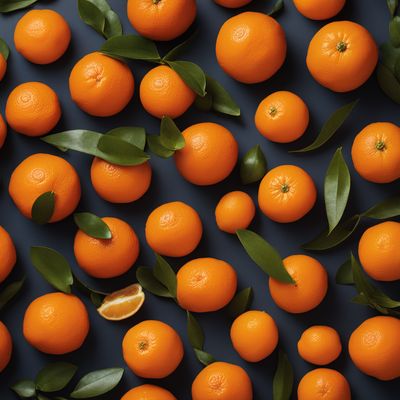
Ingredient
Mandarins and similar-
The Citrus Delight
Mandarins and similar citrus fruits are a delightful addition to any fruit bowl or culinary creation. With their vibrant colors, refreshing flavors, and easy-to-peel skin, mandarins are a popular choice for snacking, juicing, and cooking.
Origins and history
Mandarins are believed to have originated in Southeast Asia and have been cultivated for thousands of years. They are closely related to other citrus fruits, such as oranges and tangerines, and share similar characteristics. Mandarins are widely enjoyed around the world for their sweet-tart flavor, juiciness, and versatility in both sweet and savory dishes.
Nutritional information
Mandarins and similar citrus fruits are a good source of vitamin C, which is essential for immune function, collagen production, and antioxidant protection. They also provide dietary fiber, potassium, and other vitamins and minerals that support overall health. Additionally, mandarins contain flavonoids, which have been associated with various health benefits, including reduced inflammation and improved heart health.
Allergens
There are no known allergens associated with mandarins and similar citrus fruits.
How to select
When selecting mandarins, choose fruits that are firm, heavy for their size, and free from any soft spots or blemishes. The skin should be smooth and brightly colored, indicating ripeness. Avoid mandarins that feel overly soft or have a dull appearance, as these may be past their prime. Look for fruits that have a fragrant aroma, as this is a sign of sweetness and flavor. If possible, opt for organic or locally grown mandarins to support sustainable farming practices and enjoy the freshest fruit.
Storage recommendations
To maintain the freshness and flavor of mandarins, store them at room temperature for up to a week. If you prefer chilled fruit, you can refrigerate mandarins for up to two weeks. Keep them in a perforated plastic bag or in the crisper drawer to prevent moisture loss. Avoid storing mandarins near strong-smelling foods, as they can absorb odors easily. For longer storage, mandarins can be peeled, segmented, and frozen for up to six months.
How to produce
Mandarins and similar citrus fruits can be grown in home gardens or containers, provided they are in a suitable climate. They thrive in warm, subtropical regions with mild winters. Mandarin trees require well-drained soil, full sun, and regular watering. With proper care and maintenance, you can enjoy a bountiful harvest of mandarins in your own backyard.
Preparation tips
Mandarins can be enjoyed as a refreshing snack on their own or added to fruit salads for a burst of citrus flavor. They can also be juiced to make fresh orange juice or used as a flavoring in smoothies, cocktails, and mocktails. Mandarins can be incorporated into both sweet and savory dishes, such as salads, marinades, sauces, and desserts. Their segments can be used as a garnish or topping for cakes, pies, and ice creams. Additionally, mandarin zest can be used to add a bright, citrusy flavor to baked goods and savory dishes.
Culinary uses
Mandarins and similar citrus fruits are widely used in various cuisines around the world. They are commonly enjoyed as a snack or dessert fruit, particularly during the winter months when they are in season. Mandarins are also used in salads, salsas, and relishes to add a burst of citrus flavor. In Asian cuisines, mandarins are often used in stir-fries, sauces, and marinades. They can also be candied or preserved to make marmalades, jams, and chutneys. Mandarins are a versatile ingredient that can be incorporated into both sweet and savory dishes, adding a refreshing and tangy element.
Availability
Mandarins and similar citrus fruits are cultivated in many regions around the world, including China, Spain, the United States, and Brazil. They are commonly available in supermarkets, grocery stores, and farmers markets, especially during the winter months when they are in season. Mandarins are also exported to other countries, making them accessible to consumers worldwide.
More ingredients from this category

Tangors
The Zesty Hybrid: Unveiling the Tangors' Citrus Symphony

Clementines
Sunshine in a Peel: Clementines

Other hybrids of Citrus reticulata, not elsewhere mentioned
Citrus Reticulata Hybrids: Unveiling the Zesty World of Citrus Delights

Minneolas
The Citrus Gem

Calamondins
The Zesty Jewel of Citrus

Satsumas
Sweet and Tangy Citrus Delights

Mediterranean mandarins
Sun-Kissed Citrus Delight

Cleopatra mandarins
The Citrus Jewel: Discover the Allure of Cleopatra Mandarins

Tankan mandarin
The Citrus Jewel

Tangerines
The Tangy Delight

Mandarins
The Citrus Jewel